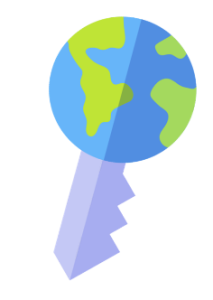2.6 Key Terms
 Key Terms
Key Terms
Economic growth is the increase in the amount of the goods and services produced by an economy over time. 2.1
Foreign Exchange provides a means for settling accounts across borders. 2.1
General Agreement on Tariffs and Trade, or GATT: Prompted regular negotiations among a growing body of members to reciprocally reduce tariffs (import taxes) on imported goods. 2.1
Gross Domestic Product (GDP) is the value of all final goods and services produced within a country in a given year. 2.1
Gross National Product (GNP) includes what is produced domestically and what is produced by domestic labour and business abroad in a year. 2.1
Inflation is a general and ongoing rise in the level of prices in an entire economy. 2.1
Legal Environment Consists of Laws: Courts, attorneys, legal customs, and practices. International law is comprised of the rules and principles that nation-states consider binding upon themselves. 2.0
Legal Risk: Is the risk arising from failure to comply with statutory or regulatory obligations 2.4
Nationalism: Most nations desire to become self-reliant and to raise their status in the eyes of the rest of the world. The nationalistic spirit that exists in many nations has led them to engage in practices that have been very damaging to other countries’ marketing organizations. 2.2
Political Environment of Global Marketing: This is the set of governmental institutions, political parties, and organizations that are the expression of the people in the nations of the world. 2.0
Political Risk: Is generally defined as the risk to business interests resulting from political instability or political change. Political risk exists in every country around the globe and varies in magnitude and type from country to country. 2.3
Trade Deficit is when a country’s value of imports exceeds the value of exports.2.1
Trade Surplus is when a country’s value of exports exceeds the value of imports.2.1
Uruguay Round: Round pf multilateral trade negotiations under the GATT that was finalized in 1994. Member countries succeeded in extending the agreement to include liberalization promises in a much larger sphere of influence. 2.1
World Trade Organization (WTO):was created to manage international trade agreements, to provide a forum for regular discussion of trade matters, and to implement a well-defined process for settling trade disputes that might arise among countries. 2.1

